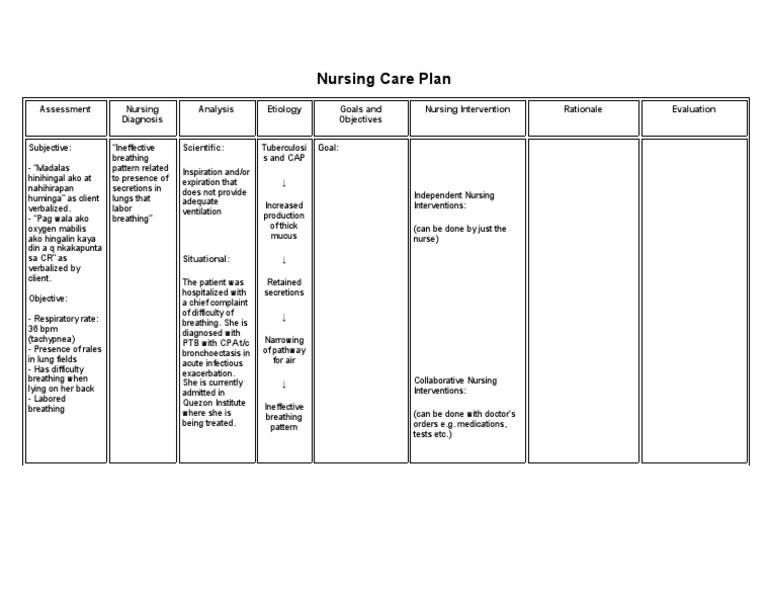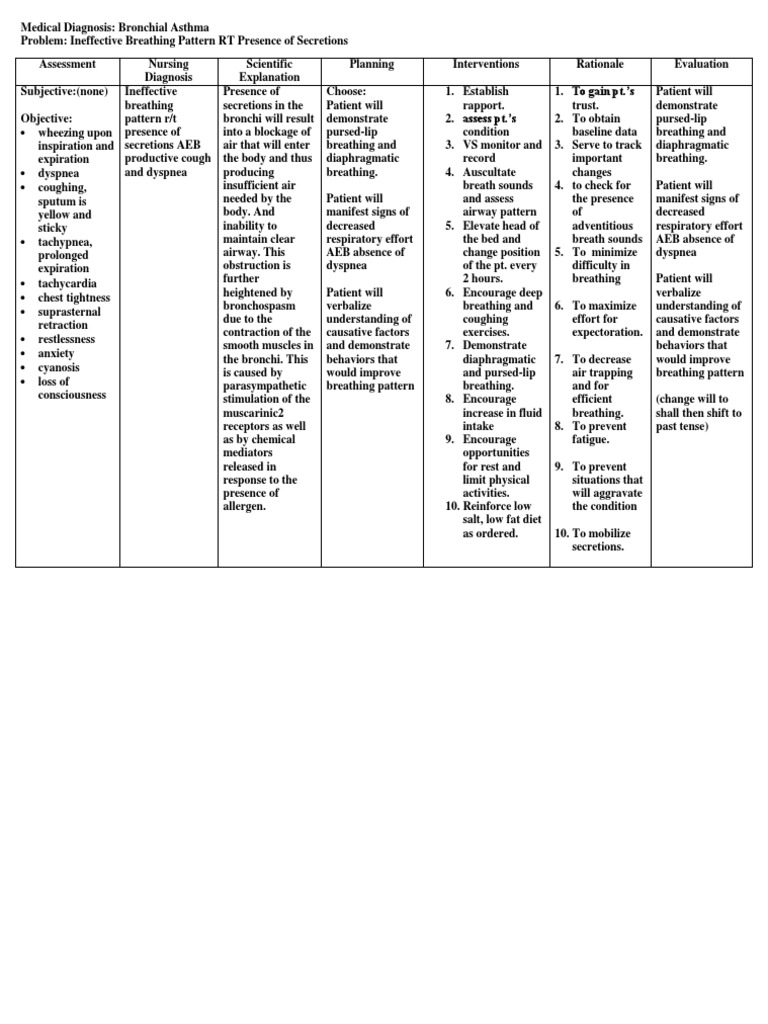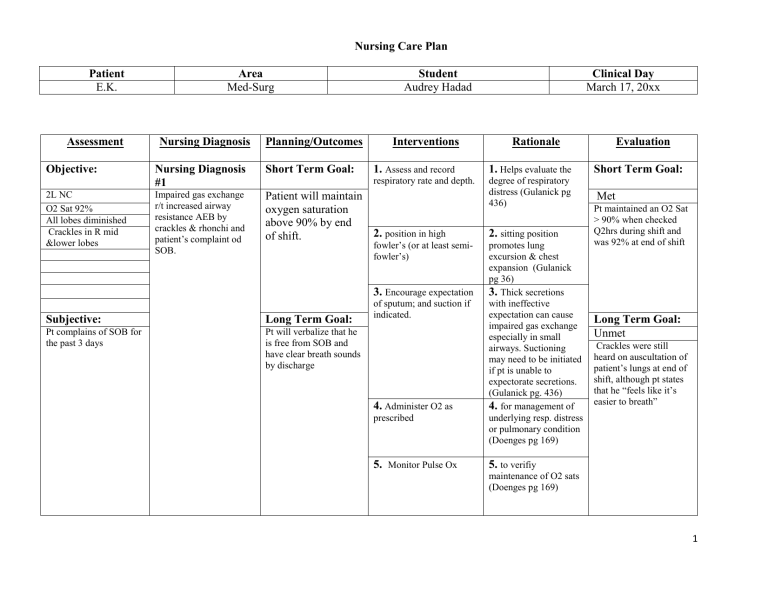Patient will deny shortness of breath. Web the nursing care plan addresses an asthma exacerbation in a client with a respiratory rate of 37 breaths per minute, nasal flaring, and use of accessory muscles. Pneumothoraces are divided into the following categories: Web nursing care plans. Ineffective breathing pattern, dyspnea, respiratory distress.
Web ineffective breathing pattern. This nursing care plan and diagnosis is for the following condition: Pneumothoraces are divided into the following categories: Web ineffective breathing pattern care plan: State whether or not the goal was met.
Web ineffective breathing pattern. Web the signs and symptoms of dyspnea may be described as: Web the nursing care plan assessed an ineffective breathing pattern and activity intolerance in a patient with community acquired pneumonia. Web nursing care plans. This nursing care plan and diagnosis is for the following condition:
Vital signs on admission showed an. Web nursing care plans. Changes in respiratory rate, depth, and pattern. Web ineffective breathing pattern refers to an abnormal or inefficient way of breathing that hampers the exchange of oxygen and carbon dioxide in the body. Web the signs and symptoms of dyspnea may be described as: Web the patient has a pleural effusion causing dyspnea and ineffective breathing, so the nursing care plan focuses on monitoring vital signs and respiratory status, encouraging. Web ineffective breathing pattern. Patient will deny shortness of breath. Web ineffective breathing pattern the cardinal symptom of copd is shortness of breath from airflow obstruction. Web the nursing care plan addresses an asthma exacerbation in a client with a respiratory rate of 37 breaths per minute, nasal flaring, and use of accessory muscles. Listen to respiratory sounds, observe areas of diminished/absent ventilation. Include evidenced based rationales for each nursing intervention using your textbooks. Web ineffective breathing pattern care plan: Web acute respiratory failure manifests with the following symptoms: Web if you are a nursing student, you will want to fully understand the signs, symptoms, and treatments of ineffective breathing patterns.
Web Ineffective Breathing Pattern.
Patients with sleep apnea experience ineffective breathing patterns as the airways can become obstructed and collapse during. Web the nursing care plan addresses an asthma exacerbation in a client with a respiratory rate of 37 breaths per minute, nasal flaring, and use of accessory muscles. Web patient to increase breathing capacity. Web nursing care plan for ineffective breathing pattern.
Web The Following Are Common Nursing Care Planning Goals And Expected Outcomes For An Ineffective Breathing Pattern:
Pneumothoraces are divided into the following categories: Web ineffective breathing pattern refers to an abnormal or inefficient way of breathing that hampers the exchange of oxygen and carbon dioxide in the body. Web acute respiratory failure manifests with the following symptoms: Web ineffective breathing pattern care plan:
Web Ineffective Breathing Pattern.
It can be frightening for patients and requires prompt. Patient will deny shortness of breath. Changes in respiratory rate, depth, and pattern. Web if you are a nursing student, you will want to fully understand the signs, symptoms, and treatments of ineffective breathing patterns.
Web The Evaluation Of The Breathing Pattern Is Essential To Define Nursing Interventions And Care Plan To Meet The Patients’ Needs.
Web irregular breathing (hyperventilating), nasal flaring, mouth breathing, gasping for air, and use of accessory muscles are symptoms of an ineffective breathing. Web ineffective breathing pattern the cardinal symptom of copd is shortness of breath from airflow obstruction. Once the nurse identifies nursing diagnoses for ards, nursing care plans help prioritize assessments and interventions for both short. Web the patient has a pleural effusion causing dyspnea and ineffective breathing, so the nursing care plan focuses on monitoring vital signs and respiratory status, encouraging.









